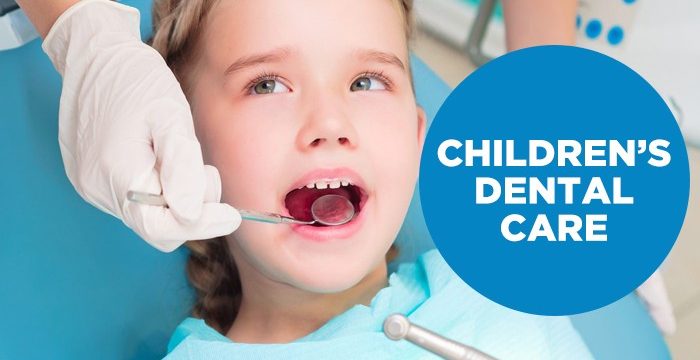
Dental care begins at a young age, placing responsibility on parents to teach good oral hygiene. Proper dental care should be maintained for a lifetime to prevent dental problems from developing. Professional treatment is an important part of dental care for children. Examinations, brushing, flossing, rinsing, and fluoride treatments are major components of dental care during childhood.
Starting and Maintaining Dental Care for Children
Dental care should begin during the newborn and infant years. Wiping gums with a damp washcloth after meals and putting children to bed with only bottles of water help to prevent issues when teeth develop. As soon as the first tooth shows, parents should switch to a soft toothbrush to clean teeth at least twice a day. Before all primary teeth become visible, the child should visit the dentist.
Dentists who cater to children often recommend a trial visit that exposes the child to the dental office environment. Children who have their teeth brushed every day should have a comfort level with the oral examination portion of a dental visit. Once children get permanent teeth, they should begin flossing each night before bedtime. Dentists provide instructions on proper flossing procedures but parents should monitor children until the process has been mastered.
Other Important Components of Dental Care for Children
Dentists recommend that children receive professional applications of fluoride at least two times a year. In addition, parents should administer systemic fluoride drops to infants and fluoride tablets to children through the teenage years. Parents should carefully monitor the amounts of fluoride ingested by children. Too little may result in tooth decay and too much may cause white spots on the teeth called fluorosis.
During the teenage years, tooth extractions or braces may be required to prevent long-term dental issues. The American Association of Orthodontics recommends an orthodontic evaluation for children before age seven. Braces are used to straighten teeth and improve the bite, helping to prevent jaw problems and crooked teeth that may contribute to tooth decay, abnormal tooth wear, chewing difficulties, and more.
Beginning good dental care during the early years and continuing this through childhood increase the likelihood of children practicing good oral hygiene as adults. This approach may prevent the need for fillings and other dental procedures that are invasive, painful, and expensive. Parents should reinforce the message that we each receive only one set of permanent teeth so we must care for teeth properly over the years.
Article Source: https://bit.ly/3IHTFDJ
